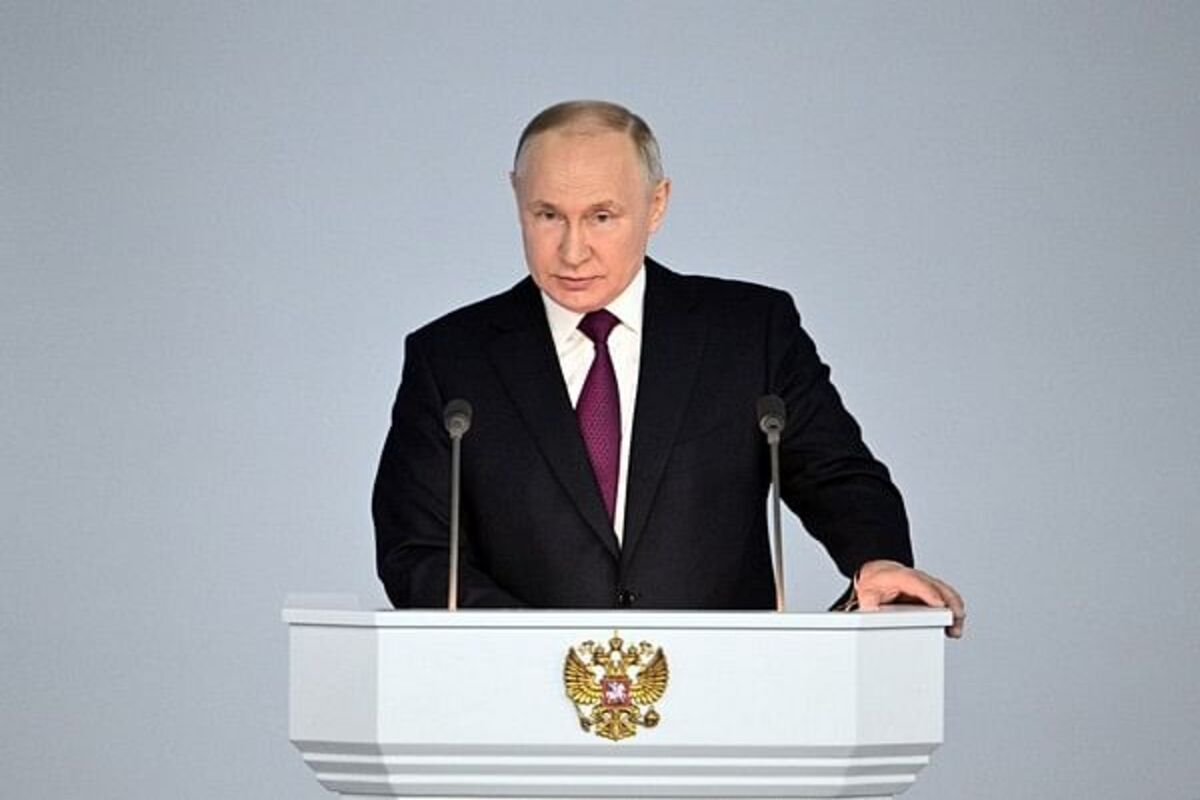2 Indian military teams plant tri-colour on Mt. Elbrus in multinational military ‘Climb for Peace’ event
Lt. Colonel Manoj Joshi led the six-member Tri-Services team that climbed the 5,642-metre mountain in Russia on Thursday.
In an era marked by geopolitical turbulence, one nation stands out as a persistent source of global concern ~ Russia, under the iron grip of President Vladimir Putin.

Russian President Vladimir Putin (Image Credit: Twitter/@mfa_russia)
In an era marked by geopolitical turbulence, one nation stands out as a persistent source of global concern ~ Russia, under the iron grip of President Vladimir Putin. The recent electoral charade merely reaffirmed Mr Putin’s stranglehold on power, signalling not just another term in office, but a prolonged era of uncertainty and aggression. Mr Putin’s ambitions transcend the borders of Ukraine, echoing the imperialist designs of past rulers. Critics believe his regime’s resilience, fuelled by economic restructuring and ruthless suppression of dissent, now poses a grave threat not only to neighbouring states but to the very foundations of international order.
The Kremlin’s playbook, rife with misinformation, cyber warfare, and unconventional weaponry, casts a shadow of instability across continents. The West, which is to blame for relentless extension of its security arrangements to Russia’s borders, has now shown wavering resolve and misplaced strategies. While support for Ukraine remains pivotal, it is but one piece of a broader puzzle. Sanctions, though well-intentioned, have fallen short of their intended impact, undermined by global indifference and geopolitical pragmatism. The time has come for a recalibration of priorities and a reassertion of Western leadership. Central to any effective strategy is a concerted effort to engage with Russian citizens, disentangling the regime from the populace it purports to represent.
This entails not only highlighting human rights abuses but also fostering channels of information and exchange. By empowering the forces of modernisation within Russia, the West can sow the seeds of change from within, laying the groundwork for a future free from Mr Putin’s autocratic grip. Moreover, the West must bolster its military deterrence, shoring up defences in Europe and reaffirming the transatlantic alliance. The spectre of a resurgent Russia must be met with resolve, lest the void be filled by further aggression and destabilisation. It is imperative that Europe meets its NATO commitments, with or without the uncertain spectre of American leadership. Yet, perhaps the most potent weapon in the West’s arsenal lies in the power of ideas. The liberal values that underpin Western democracies have long served as a beacon of hope for oppressed peoples around the world. Now more than ever, they must be wielded as a bulwark against the tide of authoritarianism emanating from the Kremlin.
Advertisement
By countering Russian disinformation and promoting a narrative of openness and inclusivity, the West can challenge the rhetoric of nationalism and victimhood peddled by Mr Putin’s regime. It is through the dissemination of truth and the embrace of universal values that the seeds of change will ultimately take root, paving the way for a Russia that is no longer beholden to the whims of a despot. The road ahead may be fraught with challenges, but the stakes could not be higher. It is not merely the fate of Ukraine or the stability of Europe that hangs in the balance, but the future of the liberal world order itself.
Advertisement